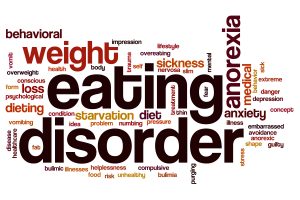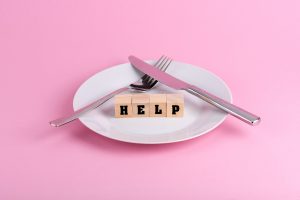Working Systemically with Eating Disorders and Associated Mental Health Issues
As part of the overall Leone Centre’s professional development, all of our therapists – alongside their qualifications and previous experience – were offered training on eating disorders with authorities in the field: Marilyn Brennan and Sylvia Metzer. In this training we explored systematic therapeutic options and mental health issues that can appear alongside eating disorders. The training was inclusive of therapists and health and social workers, supporting individuals, couples, and families with eating disorders and mental health issues.
Within this training our team learn how to recognise the signs, how to support the couple and / or the family as a unit, and when and how to refer onto other services, including specialist treatment providers.
What is an Eating Disorder?
An eating Disorder is identified as a mental health condition based on negative abnormal eating behaviours that effect a person’s wellbeing and physical and mental health.
People with eating disorders often work in a way where the eating disorder dissociates the person from unbearable pain and can make them numb to it and the eating disorder becomes a coping mechanism for them.
Eating disorders and problems cannot be defined as one specific issue and can be any difficult relationship with food. A person can develop one or multiple eating disorders, or symptoms from more than one disorder.
The several types of eating disorders can include Bulimia, Anorexia, Binge-eating disorder, Rumination disorder, and Pica as well as a range of more specific and rare cases.
Mental health and Behavioural signs to look out for:
- Not being hungry/saying they are not hungry
- Extreme or dramatic weight loss
- Conscious of eating around people
- Wearing extra layers of clothes to hide their body or keep warm
- Fad diets
- Calorie counting
- Health related issues, stomach cramps, constipation, fatigue, missing periods
- Limiting food types or completely refusing to eat some foods
- Obsession with the scales or measuring
- Excessive exercising
- Lack of interest or concentration
- Anaemia, light-headedness or even fainting
- Irregular sleep patterns
- Thinning hair
- Generally feeling weak, lacking muscle tone
Beliefs and examples of environmental triggers
Causes for eating disorders are far more complex than people believe. Triggers can often start from an early age and be caused by a critical parent/family member or even comments made in school. In today’s society, social media plays a large part with perception of image and how you “should” look or what is portrayed as “normal.”

Often people that have an eating disorder will be more likely to have other mental health conditions, these can include obsessive compulsiveness, perfectionism, low self-esteem, self-harming, anxiety and depression, substance misuse and neurodevelopmental disorders – for example ADHD or oppositional defiance disorder. Eating disorders can also be part of a genetic disposition.
Examples of environmental triggers:
- Age milestones
- Bullying/peer comments
- Culture
- Bereavement/loss
- Religion
- Family and Friends
- Health
- Not talking about emotions
- Trauma
- Relationships
- Physical or mental abuse
- Identity
- Social Media
- Anxiety and Depression
What does not work or is unhelpful?
When talking to a person with an eating disorder, there can be many conversation topics that are not helpful or could potentially worsen the condition. Comments and conversational topics can include the persons appearance, the amount of exercise they are doing, suggesting exercise, food discussions, and opinions on how they think they should get better.
Light-hearted comments or humour around appearances of other people including their size, look and weight can cause intense negative feelings and low self-esteem for people suffering with an eating disorder.
Examples:
- You look well = You look fat
- When ordering a meal, you must be hungry = you are greedy
- You enjoyed that didn’t you = you are fat and greedy
- If you eat that just do more exercise to burn it off = I need to exercise more I look big
- Why don’t you just eat healthier
- You don’t look sick to me
- Can’t you just eat bigger portions to put weight on
- You should eat more to make your family happy
Other extremely unhealthy contributions to somebody’s eating disorder can include frustration and anger towards them, making assumption on what their disorder means and why the eating disorder has developed, or trying to force or trick the person into eating.
The danger of these contribution is you could make the persons relationship with food even worse or cause anxiety. The person may also withdraw from that person and work harder to assure them they are getting better even when they’re not.
Ways to support someone

Listen to them, take the time to try and understand their thoughts, let them feel heard by respecting their thoughts and feelings and support them positively with goals on working towards getting help. By doing this even if you don’t agree with what they are saying, you can help build their self-esteem. Help them to understand that they are loved and valued for non-physical reasons and remind them of positive times you have had with them and discuss the future and social times that you would like to have together.
Psychological Education for Eating Disorders and families
One particular type of therapy that is extremely productive when working with an individual with an eating disorder and their family is psycho education. Psycho education helps people with an eating disorder to understand its causes of mental illness relating to eating disorders. Greater understanding helps families and loved ones to support the individual and identify particular behaviours and thoughts, and any hidden underlying causes they may have. Working with this in a positive way helps gain motivation to setting targets and goals to get better.
Psycho education enables families and loves ones to gain a better understanding of eating disorders and mental illness and the stigma, guilt and behaviours that may be present. Understanding and supporting their loved one is one of the most successful and long-term recovery indicators.
Importance of Hope
Working with eating disorders, hope should always be included. Discuss positive outcomes and use case studies to understand different presentations, behaviours and beliefs to help gain positive motivation for goals to work towards.
Identify strengths and positive behaviours within the family and relationships. Keep a weekly diary of what went well and potential triggers to discuss and work through enabling them to keep a positive approach should this occur again.
One third of women heal from an eating disorder, one third of women manage to continue and live with it whilst one third will always need constant help and support. Use positive stories of hope to help the individual be part of the third of women who heal.
Signpost individual and families to watch documentaries on eating disorders such as Louis Theroux – Talking to Anorexia. Watching and gaining an understanding of others helps individual and families to not feel so isolated and give positive stories of hope for the future.
- About the Author
- Latest Posts
Co-founder and director of Leone Centre, 20+ years of experience supporting people, and offering valuable knowledge through Couples Counselling and Individual Counselling. Before becoming a therapist, I worked in the financial sector.

Get Started Today
with Leone Centre

BOOK NOW

Call us
020 3930 1007

View our therapists
Find your match


